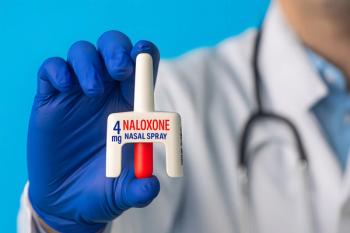
Research Shows Influence of Cannabis on Immunology, Oncology
Cannabis use and cannabinoids influence various immune disorders and treatments, mostly via CB2 regulation, according to a virtual session at the at the ASHP 2020 Midyear meeting.
Cannabis use and cannabinoids influence various immune disorders and treatments, mostly via CB2 regulation, according to a virtual session at the at the American Society of Health-System Pharmacists (ASHP) 2020 Midyear Clinical Meeting and Exhibition.
From a synthesis perspective, there are 3 cannabinoid types, including phytocannabinoids, endogenous, and synthetic. According to Linda Klumpers, PhD, partner of Verdient Science, while synthetic is more recreational, endogenous is in the anandamide family whereas phytocannabinoids are in the tetrahydrocannabinol (THC) and cannabidiol (CBD) family.
Klumpers reminded the session viewers that health care providers are the only ones who can prescribe pharmaceutical cannabis. “There is cannabis out there, not in the United States, that is pharmaceutical quality but is not necessarily registered for a particular indication,” Klumpers added.
The presentation demonstrated that the endocannabinoid system modulates immune response, and this helps activated immune cells produce and release endocannabinoids, since many cannabinoid type 2 receptors are mainly located in the immune system. This includes areas such as spleen, lymphoid tissue, neutrophils, mast cells, and NK cells.
In the immunology realm, different animal models were used to test pathologies for conditions such as brain diseases, inflammatory bowel disease, and rheumatoid arthritis. Neuroprotective effects were shown in conditions such as stroke, amyotrophic lateral sclerosis, and multiple sclerosis, with CB2 induced in “reactive” glia cells.
Klumpers gives health care practices a few tips, including monitoring cannabinoids’ various drug-disease interactions, such as depression and anxiety, and the number of patients using cannabis, especially in “newer” segments, like pregnancy and lactation.
In oncology, a retrospective look at patients with cancer on immunotherapy demonstrated use of cannabis decreased the response rate to immunotherapy in patients with lung, melanoma, and renal cell cancers, according to Christina Roussel, PharmD, BCOP, BCSCP, director of pharmacy at Doylestown Hospital in Hatboro, Pennsylvania.
Specifically, with cannabis and tumor response to nivolumab, 140 patients with stage 5 melanoma, non-small cell lung cancer, and renal cell carcinoma saw a 37.5% response rate in nivolumab alone compared with 15.9% in the nivolumab-cannabis group. However, cannabis use was not a significant factor for progression-free survival nor overall survival.
REFERENCE
Klumpers L, Tagen M, Roussel C. Just the cannabis facts please: a review of published research in immunology and oncology. Presented at: 2020 ASHP Midyear Clinical Meeting and Exhibition; virtual: December 8, 2020.
Newsletter
Stay informed on drug updates, treatment guidelines, and pharmacy practice trends—subscribe to Pharmacy Times for weekly clinical insights.


























